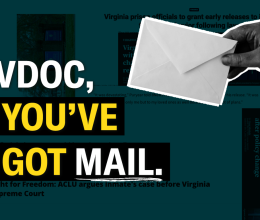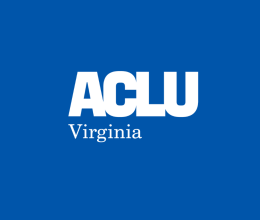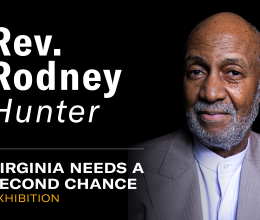By Kent Willis, Executive Director, ACLU of Virginia
The Terrorists Information and Prevention System, or TIPS, is yet another Bush Administration anti-terrorism proposal that is more salve and sound bite than substance-- and more likely to threaten civil liberties than protect national security. Ironically, its one saving grace may be that it is so vague and unformed that there still is a chance of shaping it into something worthwhile.
TIPS, which will start out as a pilot project involving a mere one million workers, is expected to become "a nationwide program giving millions of American truckers, letter carriers, train conductors, ship captains, utility employees, and others a formal way to report suspicious terrorists activity." The plan is to train workers whose jobs include frequent, and sometimes close, contact with ordinary people "to serve as extra eyes and ears for law enforcement."
In theory, this ought to be a good idea. One aspect of good citizenship is being aware of criminal behavior and reporting it to the proper authorities. From criminal hotline programs in which citizens alert police to suspected criminal activity to Neighborhood Watch groups, a vigilant population can increase safety and engender a positive community spirit.
If TIPS were just a program to educate volunteers about how to be alert to possible terrorism, the only real questions would be about its efficacy. It is doubtful, for example, that any acts of terrorism will be uncovered because an on-duty Neighborhood Watch volunteer sees a stranger lingering in an alley at three o'clock in the morning.
In fact, millions of citizens trained and encouraged to report suspicious activity will most likely create millions of tips that lead to nowhere. Unfocused investigations of covert activities--such as the FBI's heavily criticized and unsuccessful interrogations of 5,000 Middle Eastern students earlier this year--are simply not effective tools for law enforcement. They not only waste time and energy, but they also divert resources from proven crime fighting efforts.
No one is objecting in principle to heightened security at airports, where the federal government is placing more and better trained personnel to detect terrorists. In the same way, it is likely that there will plenty of support for efforts to beef up security in shipping ports and other places where the threat of terrorism is greatest.
TIPS, though, seems to be an attempt to weave surveillance into the very fabric of American culture. Workers for utility, cable, and postal delivery services--people whom we allow onto our property and into our homes and offices--may soon be doing far more than their assigned tasks. When one of them visits, should you be worried about the books you are reading or the magazines to which you subscribe? What about that oddly wired computer connection your son rigged up for you?
This is more than an uneasy feeling about who might be spying on you. At stake is perhaps one of the most fundamental and defining rights we have an Americans: the guarantee under the Fourth Amendment to privacy within own homes. The government cannot enter your home unless it can first show that it has probable cause to believe that you are engaged in illegal activity. If the TIPS program allows the police to recruit private citizens to be its "eyes and ears" when they enter your home or property, then the government will have found away to circumvent the Fourth Amendment.
The distance from vigilance to vigilantism can be very short. In emotionally charged times such as these, the TIPS program could too easily become a vehicle for turning neighbor against neighbor and an excuse for everyone to turn against people who appear Middle Eastern or who practice the Muslim faith.
A nightmare scenario presaging TIPS occurred earlier this month in Virginia. In Arlington, neighbors of a retired doctor from Pakistan convinced the doctor's landlord to allow them to search through some items the doctor had left behind when he moved out. When they found a private pilot's license and technical papers on electronics, they called the FBI. The FBI arrested the doctor in Abingdon, where he was visiting, threw him in jail for six days, and finally hauled him before a secret grand jury. He was ultimately freed without any charges being filed.
Before TIPS becomes a full fledged government program affecting millions of people, we can only hope that it is formed and focused in way that respects our constitutional rights and helps us be good citizens, not Peeping Toms. It would be nice, too, if there were some indication it might actually help us fight terrorism.
NEW
Virginia students sue DoDEA schools over curriculum changes






